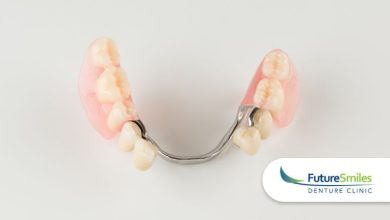How Long Do Teeth Implants Last: Unveiling the Lifespan Secrets

Teeth implants can last a lifetime with regular brushing and flossing, but they can also fail in certain cases. Good oral hygiene and care are essential for ensuring the longevity of dental implants.
Proper maintenance can prevent issues such as plaque and tartar buildup, which can lead to implant failure. While the titanium post and abutment of the implant tend to last indefinitely, the restoration on top may require replacement due to wear and tear.
With the right care, dental implants can be a long-term solution for replacing missing teeth.
1. Understanding Dental Implants Lifespan
Dental implants revolutionize the field of dentistry, providing a long-term solution for missing teeth. They are designed to last a lifetime for many people, but various factors can influence their lifespan. It is important to understand the longevity of dental implants to make informed decisions about oral health and dental procedures.
| Factor | Description |
|---|---|
| Oral Hygiene | Good oral hygiene practices, such as regular brushing and flossing, can help ensure the longevity of dental implants. Proper care and maintenance are essential for their success. |
| Teeth Grinding | Bruxism, or teeth grinding, can exert excessive pressure on dental implants, leading to stress on the implant and potential failure. Wearing a nightguard can help protect the implants. |
| Implant Quality | The quality of the dental implant itself plays a crucial role in its lifespan. High-quality implants have better durability and are less likely to experience complications. |
It is essential to have realistic expectations and knowledge about the lifespan of dental implants. Understanding their longevity helps patients make informed decisions regarding their oral health goals, treatment options, and long-term maintenance plans. Regular dental visits and following the advice of dental professionals can significantly contribute to the success and sustainability of dental implants.
2. The Lifetime Of Dental Implants: Debunking Myths
While dental implants can last a lifetime for many people, in some cases, they can fail. Generally speaking, implant failure typically happens due to factors such as poor oral hygiene, teeth grinding, and improper placement. It’s important to note that the titanium post and the abutment tend to last for a lifetime, but the restoration on top may require replacement due to wear and tear.
Practicing good oral hygiene, like regular flossing and brushing, can help ensure your implant lasts for many years. Dental implants are a worthwhile investment as they eliminate the risk of developing future tooth decay and provide long-term stability compared to other dental options.
However, it’s crucial to take care of your implants and maintain regular dental check-ups to prevent any potential issues. Like natural teeth, if proper oral care is not practiced, plaque and tartar can accumulate around the implant, leading to complications.
3. Factors Influencing The Lifespan Of Dental Implants
| Factors Influencing the Lifespan of Dental Implants |
Good oral hygiene plays a crucial role in the longevity of dental implants. Regular brushing and flossing help keep the implant screw lasting for a lifetime. Additionally, maintaining bone health is essential for implant success. The implant post, typically made of titanium, fuses with the jawbone over time, providing stability. However, habits such as teeth grinding can impact the lifespan of dental implants. Excessive force from teeth grinding can put stress on the implants, potentially leading to failure. It is recommended to address habits like teeth grinding promptly to ensure the longevity of the dental implants. By practicing proper oral care and addressing habits that could negatively affect the implants, individuals can maximize the lifespan of their dental implants.

Credit: foxcreekfamilydental.com
4. Protecting And Maintaining Dental Implants For Longevity
|
Key oral hygiene practices for preserving implant lifespan:
Practicing good oral hygiene, like regular flossing and brushing, can help ensure your implant lasts for many, many years. With regular brushing and flossing, the implant screw itself can last a lifetime. However, it’s important to note that while dental implants can last a lifetime for many people, in some cases, they can fail. Generally speaking, implant failure typically happens due to factors such as poor oral hygiene, smoking, teeth grinding, and certain medical conditions. Therefore, it is crucial to prioritize regular dental check-ups and professional cleanings to detect any issues early on and to address them promptly. Avoiding behaviors that jeopardize implant health, such as smoking and chewing on hard objects, can also significantly contribute to the longevity of dental implants. By following these key oral hygiene practices and making healthy lifestyle choices, you can maximize the lifespan of your dental implants and maintain a healthy and functional smile for years to come. |
5. Long-term Benefits Of Dental Implants
|
Implants Save You Money Long-Term: Crowns, bridges, and dentures are also likely to last longer than without implants because they’re held firmly in place. Dental implants eliminate the risk of developing future tooth decay: With regular brushing and flossing, the implant screw itself can last a lifetime. Implants Are Well Worth The Initial Investment: Over time, the root of the implant fuses with the jawbone and maintains its permanency but it can also become loose if the bone starts to decay. Like natural teeth, if proper oral care is not practiced: plaque and tartar will accumulate around the implant. |
6. Potential Disadvantages And Limitations Of Dental Implants
|
The risk of implant failure and necessary replacements:
|
7. Exploring Alternative Options To Dental Implants
Teeth implants can last a lifetime with proper oral care, including regular brushing and flossing. While the implant itself can last for many years, it’s important to note that the restoration on top may require maintenance or replacement over time.
|
7. Exploring Alternative Options to Dental Implants
When considering tooth replacement options, it’s important to review alternative options to dental implants. While implants can last a lifetime with proper care, there are other options to consider. Reviewing alternative tooth replacement options Alternatives to dental implants include dental bridges and dentures. Dental bridges are false teeth that are anchored to adjacent teeth, while dentures are removable false teeth. Each option has its pros and cons, which should be carefully considered. Comparing the pros and cons of implants and alternatives Dental implants offer a permanent solution with natural feel and appearance. However, they require oral surgery and can be expensive. On the other hand, dental bridges are less invasive but may require adjacent teeth to be filed down. Dentures are the most affordable option but may not provide the same stability and comfort as implants. Factors to consider when choosing between implants and alternatives When deciding between dental implants and alternative options, factors to consider include overall oral health, bone density, budget, and personal preferences. Consulting with a dentist can help determine the best option for individual needs. |
Frequently Asked Questions Of How Long Do Teeth Implants Last
How Often Do Implants Need To Be Replaced Teeth?
Dental implants can last a lifetime with proper care. Good oral hygiene, such as regular brushing and flossing, can help ensure the longevity of the implant. While implants generally have a high success rate, there are instances where they may need to be replaced.
Do Teeth Implants Last A Lifetime?
Teeth implants can last a lifetime with proper care like regular brushing and flossing. However, in some cases, they can fail. Practicing good oral hygiene can ensure the longevity of the implant. Like natural teeth, implants can accumulate plaque and tartar if not properly cared for.
Are Dental Implants Worth It?
Dental implants can last a lifetime and are worth it because they save you money long-term and eliminate the risk of future tooth decay. However, they require regular oral care to prevent plaque and tartar buildup. So, while they are not permanent, they are a worthwhile investment.
What Happens After 25 Years Of Dental Implant?
On average, dental implants can last a lifetime with proper oral hygiene and care. However, in some cases, implants can fail over time. Regular brushing, flossing, and dental check-ups can help ensure the longevity of your implant.
Conclusion
Dental implants can last a lifetime with proper care and oral hygiene practices such as regular brushing and flossing. While the titanium post and abutment tend to last indefinitely, the restoration on top may require replacement due to wear and tear.
It is crucial to maintain good oral health to prevent plaque and tartar buildup around the implant. Ultimately, dental implants are a worthwhile investment for their long-term benefits and elimination of future tooth decay risks.





